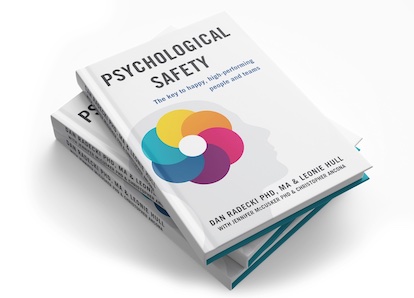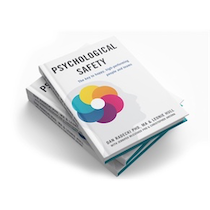The brain’s need for Security
Personality clashes in the workforce regularly derail team projects causing delays and costing companies money. When clashes are serious enough, companies often lose some of their most valuable creative minds. At the Academy of Brain-based Leadership, we see a scenario regularly that appears to be caused by personality clashes between project managers and subordinate, but important, creative members of a team. In reality, these differences shouldn’t be brushed aside as simply conflicts of personality that are impossible to overcome or understand.
Thanks to the the Academy of Brain-based Leadership’s S.A.F.E.T.Y.™ self-assessments and S.A.F.E.T.Y.™ Model, we know that one of the most common workplace situations that is dismissed as “a conflict of personality” is actually a conflict of each person’s particular need for Security. The need for (or lack of need for) Security is the first of six important domains that we focus on in our training.
The Six Domains
The six domains every employer should be aware of fit into the acronym S.A.F.E.T.Y.™
- Security: The need for certainty, consistency, and no change.
- Autonomy: The need to feel in control of one’s decisions
- Fairness: The need for just treatment
- Esteem: The need for feeling an elevated position in the social hierarchy
- Trust: The need to be part of a group that is “like us”
- You: Your own triggers that come from your background, culture, and upbringing.
When we understand each of the needs, biases, motivation, and stress triggers of each of these six domains, we can improve team relations and increase productivity. You can explore our S.A.F.E.T.Y.™ solutions when the time is right, but right now, let’s examine the need for Security.
The Need for Security
Most of our behavior is motivated by a need to feel safe, but what feels safe to one person might not be the same for the next. We frequently see a high need for Security in project managers. It plays out as a desire for consistency and certainty. Yet, some of a team’s greatest assets are the innovators and creators that have a very low need for Security.
These creative and innovative team members often relish energetic brainstorming, making last minute changes when a light bulb goes off and operating on a more liberal schedule. For their bosses, who have a high need for Security, this inconsistent and energetic behavior can feel threatening and appear as an opposition to authority. Unfortunately, an employee with a low need for security stays in jobs that fulfil them and can easily leave for another company that doesn’t stifle them. Frequently though, when dealing with employees with low Security needs, there is no opposition to authority at the root of their behavior.
Still, it isn’t always the managers that have a high need for Security. One company in Michigan experienced a discord rooted in opposing levels of need for Security. This was an art studio and the manager thrived in change, exhibiting a mutable attitude towards work while one of her artists on staff had a very high need for security. This particular artist was one of the most valuable assets to the company, but she would constantly hint at quitting every time a new, big change was implemented. It didn’t matter to the artist that the change was a positive one that would result in bringing her more money, she always feared changes of any kind. The manager learned to assure the artist of her safety and stability in her role prior to making any new change, and the problem was resolved.
Could an employer learn to adapt to retain the innovative brilliance of an employee with low Security needs if their needs are the opposite? Could an employer with a low need for Security help their employees with a high need feel a strong sense of Security while on the job? The answer to both of these questions is, “Yes!” And S.A.F.E.T.Y.™ solutions can explain how.
Academy of Brain-Based Leadership Solutions
At the Academy of Brain-Based Leadership, we can help managers and team leaders recognize the motivations, needs and challenges of team members. Our research is based on neuroscience and has proven efficacy. Whether your issues are rooted in Security or one of the other five domains, we can help isolate the issues and offer manageable, productive solutions in order to retain qualified, talented staff and increase productivity.
Employers and managers can employ S.A.F.E.T.Y.™ assessments training to understand the human brain and how to implement S.A.F.E.T.Y.™ on the job. Moreover, reading the book “Psychological Safety” can help manage personal stress, improve relationships outside of work and improve overall wellbeing.













